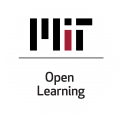
This course aims to bridge the knowledge gap between the dynamic on-the-ground reality brought on by technology innovation, academic content, and practice needed to respond systemically and more equitably to global urban challenges through new mobility disruptions.
About this archived course:
Over 8 sessions, this course will explore a wide variety of topics that relate to emerging new mobility systems and learn how new mobility can be leveraged to address and promote equity, improve health outcomes, and increase accessibility. The course material is designed to have a global impact by taking advantage of an established network of academic partners and practitioners, each bringing relevant expertise and representing distinct empirical settings. The international nature of this course will allow you to gain multiple social perspectives and familiarity with transportation challenges and solutions from different parts of the world.
Guided by the Shared Mobility Principles for Livable Cities and taught by transportation professors from Europe, Asia, Latin America, Africa, and the United States, the course provides insights into urban mobility challenges and opportunities and how the emerging new mobility paradigm can be effectively leveraged to create better, more equitable cities. The course is led by a team including Chris Zegras (MIT), Jinhua Zhao (MIT), Carlos Pardo (NUMO), and mobility entrepreneur Robin Chase, and features interviews with preeminent entrepreneurs, city planners, community development experts, and mobility justice advocates.
Topics will include land use and urban form, new mobility business models, pricing, policy, technology, and data. We will likewise reflect on the importance of designing new mobility systems for equity, health, and the environment. Additionally, this second edition of the course will also address questions of racial justice within the transportation field.
This course is recommended to professionals, government officials, and anyone else currently in the field of transportation or urban planning, but also is open to those interested in learning more about this topic.





